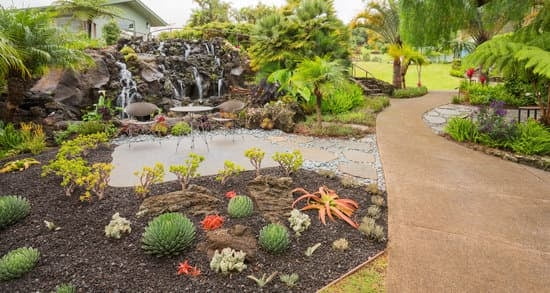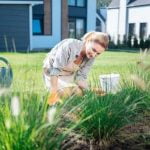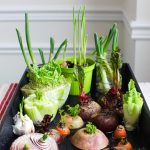Gardening Tips For Vegetables
Growing vegetables is a fun and rewarding hobby, but it can also be a bit tricky. There are a few things you need to know in order to get the most out of your garden. Here are a few tips to help you get started.
The first thing you need to consider is the type of soil you are working with. Not all soils are created equal, and some are better suited for growing vegetables than others. If you are not sure what type of soil you have, you can have it tested at your local garden center.
If your soil is not ideal, you may need to add some amendments to make it more fertile. This can be done by adding compost, manure, or other organic materials to the soil. Be sure to mix these in well so that they are evenly distributed.
Once you have the soil ready, it is time to choose your vegetables. Not all vegetables are created equal, and some will do better in certain climates than others. Be sure to research your local climate and choose vegetables that will thrive in your area.
Another important factor to consider is the amount of sunlight your garden receives. Most vegetables need at least 6 hours of sunlight per day to thrive. If your garden does not receive enough sunlight, you may need to consider growing your vegetables in containers.
Once you have selected your vegetables and prepared the soil, it is time to plant them. Be sure to follow the instructions on the seed packet, and space the plants accordingly. If you are planting them in rows, be sure to leave enough space between the rows for you to walk between them.
Once the vegetables are planted, it is important to water them regularly. Vegetables need a lot of water, especially during the hot summer months. be sure to check the soil regularly and water them when the soil feels dry to the touch.
If you follow these tips, you will be able to grow beautiful and healthy vegetables in your garden.
Vegetable Gardening Tips Kerala
Kerala, located on the Malabar Coast of southwestern India, is a coastal state with a tropical climate. Gardening is a popular hobby in Kerala, and many people grow vegetables in their backyards. While there are no specific vegetable gardening tips that are unique to Kerala, there are a few things that gardeners in this region should keep in mind.
First, the soil in Kerala is sandy and tends to be acidic. This means that gardeners should choose vegetables that are tolerant of these conditions. Some good choices include tomatoes, cucumbers, eggplant, beans, and leafy greens.
Second, gardeners in Kerala should take advantage of the region’s ample rainfall. This will help to keep the soil moist and the vegetables healthy.
Third, gardeners should be aware of the pests and diseases that are common in Kerala. Some of the most common pests include aphids, caterpillars, and whiteflies. Some of the most common diseases include bacterial wilt, blight, and mosaic virus. Gardeners should take steps to prevent these pests and diseases from affecting their vegetables.
Finally, gardeners in Kerala should be sure to harvest their vegetables regularly. This will help to ensure that the vegetables are healthy and provide the best possible yield.
Begginer Vegetable Gardening Tips
If you are new to vegetable gardening, don’t worry, you are not alone. There are many people who are just starting out and are looking for some tips to help them get started. Here are a few tips to help you get started:
1. Choose the right vegetables for your climate and soil. Not all vegetables grow well in all climates. You need to choose vegetables that will grow well in your climate and soil.
2. Start small. Don’t try to plant a huge garden your first time out. Start small and work your way up.
3. Prepare the soil. You need to prepare the soil before you plant your vegetables. You can do this by adding compost or manure to the soil.
4. Plant the vegetables in the right spot. You need to plant the vegetables in a spot that gets plenty of sun.
5. Water the vegetables. You need to water the vegetables regularly, especially during hot weather.
6. fertilize the vegetables. You need to fertilize the vegetables once a month with a fertilizer that is high in nitrogen.
7. Harvest the vegetables. You need to harvest the vegetables when they are ripe. Don’t wait too long to harvest them or they will start to rot.
These are just a few tips to help you get started vegetable gardening. Follow these tips and you will be on your way to a successful vegetable garden.
Diy Vegetable Gardening Tips
When it comes to vegetable gardening, there are a few things you can do to make the process a bit easier. Here are some tips to help you out:
1. Start small. If you’re new to gardening, start by planting a small garden. This will help you get familiar with the process, and you can always expand later.
2. Choose the right vegetables. Not all vegetables are created equal – some are easier to grow than others. Choose vegetables that are suited to your climate and growing conditions.
3. Choose the right location. When choosing a location for your garden, keep in mind the amount of sunlight the area receives. Most vegetables need at least six hours of sunlight per day.
4. Use the right soil. Good soil is essential for a successful garden. Be sure to choose a soil that is rich in nutrients and has good drainage.
5. Use the right tools. Gardening can be a lot of work, but it’s a lot easier with the right tools. Make sure you have a good shovel, hoe, and rake.
6. Prepare the soil. Before planting your vegetables, you’ll need to prepare the soil. This can be done with a garden tiller, or you can do it by hand.
7. Plant your vegetables. Once the soil is prepared, it’s time to plant your vegetables. Follow the instructions that come with your plants, and be sure to water them regularly.
8. Harvest your vegetables. Once your vegetables are grown, it’s time to harvest them. Be sure to harvest them at the right time – some vegetables should be harvested when they’re young, while others should be harvested when they’re ripe.
9. Store your vegetables. Once you’ve harvested your vegetables, you’ll need to store them properly. Be sure to keep them in a cool, dry place.
10. Enjoy your vegetables. Once you’ve planted your garden, tended to it, and harvested your vegetables, it’s time to enjoy them. Be sure to try out some of the recipes in this book, and share your favorites with your friends and family.
Vegetable Planter Gardening Tips
When it comes to vegetable gardening, planting in a planter box is a great way to get started, especially if you don’t have a lot of space. Here are some tips for getting the most out of your planter gardening:
1. Choose the right vegetables. Not all vegetables are well-suited for planting in a planter. Root vegetables like carrots and potatoes, for example, tend to do best in soil that is loose and well-drained. Other vegetables that do well in a planter include lettuce, tomatoes, peppers, and beans.
2. Amend the soil. A good way to improve the soil in your planter is to add organic matter like compost or peat moss. This will help to improve the soil’s structure and fertility.
3. Use a potting mix. A potting mix is a mix of soil, sand, and organic matter that is specifically designed for use in containers. It is lighter than regular soil, which makes it better suited for planters.
4. Water regularly. Vegetables need regular watering to stay healthy, so be sure to water your plants regularly. You may need to water more frequently in hot weather or if you are using a potting mix that doesn’t hold water well.
5. Fertilize regularly. Vegetables need nutrients to grow, so be sure to fertilize them regularly. A balanced fertilizer like 10-10-10 is a good choice.
6. Mulch the soil. Mulching the soil in your planter box with a layer of organic matter like compost or straw will help to keep the soil moist and to reduce weed growth.
With these tips in mind, you’re ready to get started with your vegetable planter gardening!

Welcome to my gardening blog! I am passionate about plants and enjoy sharing my knowledge and experiences with others. In this blog, I will write about everything related to gardening, from tips on how to get started to updates on my own garden projects.





